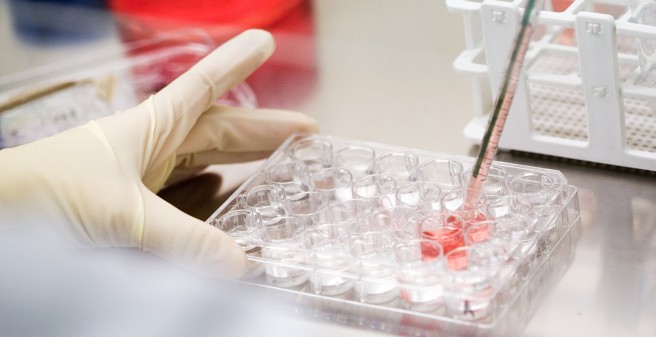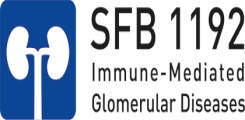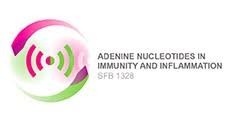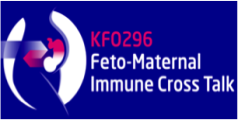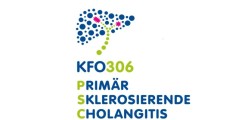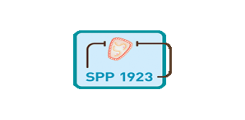CRC 1192: Immune-Mediated Glomerular Diseases
Immune-mediated glomerular diseases encompass a heterogeneous group of disorders that cause inflammation within the glomerulus and other compartments of the kidney. Despite recent important discoveries in this field, the immunopathogenesis of the various forms of immune-mediated glomerular diseases remains to be fully elucidated. However, fundamental to each of these diseases is immune-mediated kidney injury, which consists of a specific immune reaction followed by an effector phase with destructive inflammation and renal injury. Currently, treatment for most patients with immune-mediated glomerular diseases relies on unspecific immunosuppressive agents that are hazardous and only partially effective. Immune-mediated glomerular diseases therefore remain a leading cause of end-stage kidney failure in the Western world. Thus, determined efforts to characterize underlying immunopathologic mechanisms and to translate results of these studies into novel treatment concepts are clearly needed for the development of more efficacious and safer therapies for immune-mediated glomerular diseases in the future.
Here you can find more information about the CRC 1192 .
CRC 1328: Adenine Nucleotides in Immunity and Inflammation
The SFB1328 "Adenine Nucleotides in Immunity and Inflammation" focuses on cellular and molecular signaling processes in inflammation and immunity. The aim is to decipher the role of a novel class of siganling molecules in inflammatory processes and in the immune response. In addition to basic research-oriented projects, the development of new diagnostic and therapeutic methods is also a focus.
Here you can find more information about the CRC 1328
RU 2879: ImmunoStroke
Scientists from the UKE and the Universities of Essen, Muenster and Munich are pursuing the goal of uncovering previously unknown connections between the immune system and strokes and developing new treatment options.
Here you can find more information about the RU 2879
CRU 296: Feto-maternal immune cross talk
The body of a pregnant woman undergoes significant changes during pregnancy, both visible and somewhat invisible. The ‘invisible changes’ include that the maternal immune system mounts tolerance to the fetus. This is needed, as the fetus inherits markers from the father that are expressed on the cell surface. These markers, they are called antigens, could provoke a response of the maternal immune systems, similar to the reaction to a mismatching transplant. However, due to the tailored adaptations of the maternal immune system during pregnancy, a rejection of the fetus does not occur. During this adaptation, pregnancy hormones and immune cells are engaged in an intense dialogue. This cross talk between maternal hormones and immune cells ensures that the unborn child fetus can successfully develop until term.
Here you can find more information about the CRU 296 .
CRU 306: Primary sclerosing cholangitis
Primary sclerosing cholangitis, or PSC, is a rare, chronic, scarring disease of the bile ducts inside and outside the liver. It mainly affects young adults and leads to cirrhosis of the liver within 10 to 20 years. Although the disease is frequently fatal, its progress is largely unresearched. This situation hopefully changes in near future: Scientists and clinicians from Hamburg have set up the Clinical Research Unit 306 “Primary sclerosing cholangitis” to comprehensively understand and decipher this complex disease. The German Research Foundation supports the research initiative with more than four million euros in the next three years.
Here you can find more information about the CRU 306 .
SPP 1923: Innate Sensing and Restriction of Retroviruses
Retroviruses comprise a diverse group of exogenous and endogenous viruses defined by their unique replication strategy to reverse-transcribe their RNA genome into a complementary DNA. Millions of years of coevolution with their mammalian hosts gave rise to highly pathogenic as well as apathogenic members of this family of viruses. Evidence is emerging that cell-type specific cell-autonomous components of the innate immune system, including specialized pattern recognition receptors (PRRs) and broadly antiviral restriction factors (RFs), represent key determinants of the fundamentally different outcomes of retroviral infections. Specific parameters under consideration include the efficiency of cross- and intra-species transmission, pathogenesis, virus evolution, and the ability to establish a chronic infection in a new host.
Here you can find more information about the SPP 1923 .
European HIV Alliance (EHVA)
EHVA
The European HIV Alliance (EHVA) is a five year project funded by the European Union’s Horizon 2020 Research and Innovation Programme designed to foster the development of an effective vaccine. The EHVA encompasses 39 partners, each with the expertise to promote a comprehensive approachto the development of an effective HIV vaccine. The international alliance, which includes academic and industrial research partners from all over Europe, as well as sub-Saharan Africa and North America, will work to discover and progress novel vaccine candidates through the clinic. The UKE is one of the EHVA partners, and Prof. Altfeld is responsible for the Immune Profiling Work Package of EHVA (WP 6) that is designed to provide assays and technologies to monitor, fully characterize and compare immune responses in different tissues induced by prophylactic and therapeutic HIV vaccination.
Here you can find more information about the EHVA .
DZIF: German Center for Infection Research
DZIF's mission is to coordinate and strategically align translational infection research with the aim of developing new diagnostic, preventative and therapeutic methods for treating infectious diseases. The UKE is part of the Hamburg-Borstel-Lübeck DZIF site. Prof. Altfeld is a member of the TTU HIV within the DZIF, and several of Prof. Altfeld‘s research projects on HIV-1 pathogenesis and Cure research are funded by the DZIF.
Here you can find more information about the DZIF .
